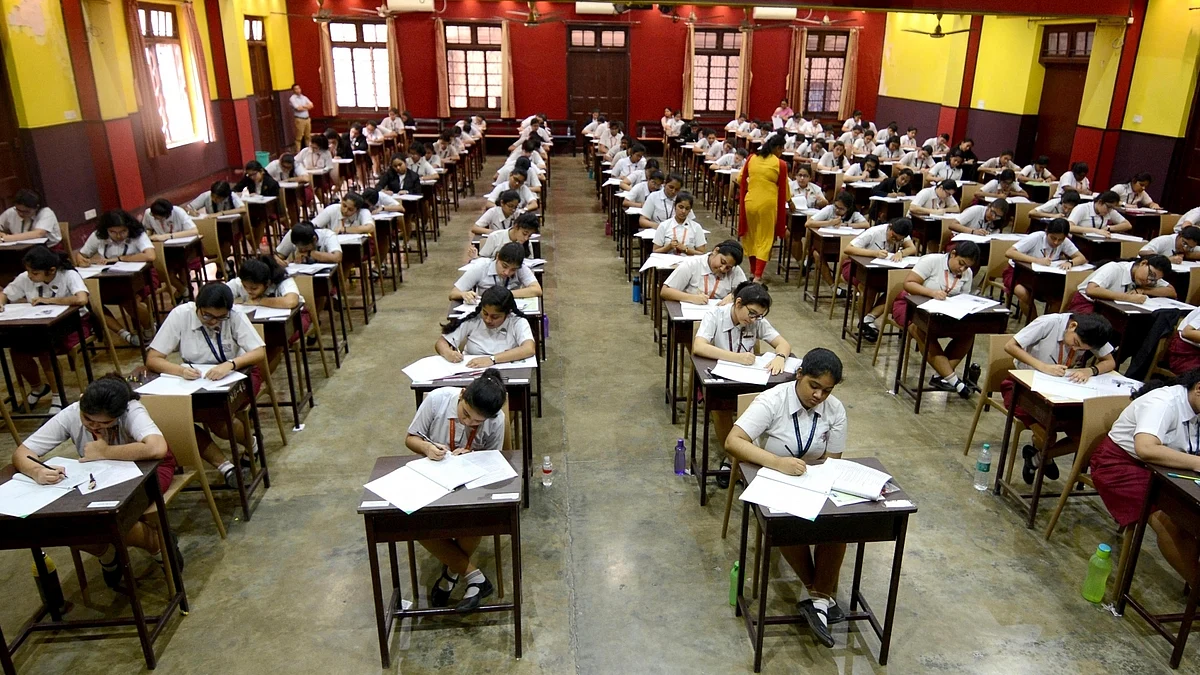Safe and secure school environment? 22% of school buildings across India old or dilapidated: NCPCR report
The report on ‘Safe and Secure School Environment’ was based on a survey of 26,071 schools across 12 states carried out by NCPCR to examine the safety and security of children in schools

About 22 per cent of schools across the country are operating from old or dilapidated buildings, according to a report by the apex child rights body NCPCR.
The report on 'Safe and Secure School Environment' was based on a survey of 26,071 schools across 12 states carried out by the National Commission for Protection of Child Rights (NCPCR) to examine the safety and security of children in schools in terms different indicators.
The states covered are from north, west, east and north-eastern parts of India. Several districts were covered in Uttar Pradesh and Madhya Pradesh, Gujarat, Chhattisgarh, Haryana and Rajasthan while a few districts were covered in Odisha, Mizoram, Uttarakhand, Meghalaya, Jharkhand and Chandigarh, the report said.
The survey showed that 22 per cent of schools are operating from old or dilapidated buildings, while 31 per cent schools reported cracks in structures.
Nineteen per cent of the schools were located near rail tracks, whereas only one per cent has speed breakers with zebra crossing sign for safety and security of children.
Another major finding in the report was that only 74 per cent schools have in-built water facilities in toilets and in the rest students have to carry water from outside.
"This is an alarming situation. It puts student's health and physical safety at risk," the report said.
It further found that only 49 per cent schools have disabled-friendly toilets.
"In terms of inclusiveness, provision of disabled-friendly toilets within the premises is an equally significant indicator. As per our data, only 49 per cent schools have such a facility. It is an issue that needs to be addressed," it said.
On mid-day meals (MDM), the report said only 57 per cent of children are satisfied with the quality of food.
As per U-DISE data, 81.5 per cent of the schools in the states covered in this report provide mid-day meals.
However, the report said that only 56 per cent of those 81.51 per cent is providing food as per the prescribed menu.
"Only 57 per cent of children are satisfied with the quality of food. There have been cases where the food was not even fit for consumption and children have been sick. They are not even being provided food in the required quantity (61 per cent). It is not surprising that if the food was not prepared as per the menu, the nutritive value in the food provided is only 60 percent of time," the report noted.
U-DISE is a database about schools in India. The database was developed by the Department of School Education, HRD Ministry.
Checking the provisions for inclusiveness, protection and safety of children with special needs (CWSN) at the school, the report found that only 40 per cent schools had facilities like classrooms, play areas, toilets accessible by wheelchair.
It was also found that in only in about 47 per cent schools CWSN were being assisted in the form of being accompanied by a teacher or attendant while using toilets.
"This is alarming. As only a handful schools have specially-abled friendly toilets. Sixty-one per cent of schools have obstruction free corridors and staircases. This could impose a serious threat to safety of children in rest of the schools," the report said.
It also found that only 32 per cent of schools have provision for blind students.
The report found that not all schools had electricity and out of the total schools with electricity, 77 per cent had a proper working electrical fitment in classrooms and corridors.
Seven per cent schools having electrical connection face problem of shocks while nine per cent have faced problem of short circuit/shock a week before the survey, the report said.
"One of the safety concerns emerged from the survey is in around 22 percent schools, high voltage wires/transformers within or adjacent to the school premises pose a safety challenge. Although the electric shock cases are low, however it is still dangerous," it said.
On fire safety in schools, the report said that 63 per cent schools have fire extinguisher, 43 per cent schools have emergency steps in place in the school to meet any fire emergency.
"Data shows that the preparedness of schools against fire safety is weak and needs to be worked on," it said.
On transportation facilities, the report found that there is a transportation facility available in 28 per cent schools -- 30 per cent of them are government schools and 70 per cent private schools.
"While enquiring about safety of a child when the child is in the transport bus, it was seen that only 18 per cent have any teacher and attendant with students on buses," it said.
On the issue of cyber safety in schools, it was observed that not all schools visited had computer rooms, and of the 55 per cent of schools where they have computer rooms and technological devices only 44 per cent schools have security systems in place to restrict internet and 42 per cent have blocked access to social media use by students, the report said.
Discouragement and prohibition of all kinds of bullying was being observed at 90 per cent schools, the report said.
"Only 60 percent schools said that they have platform for children to discuss and share their concerns related to safety and protection as against 75 per cent schools that said to have a policy against child abuse and 68 per cent schools that said to have a clearly laid out procedure in case of child abuse," the report said.
Follow us on: Facebook, Twitter, Google News, Instagram
Join our official telegram channel (@nationalherald) and stay updated with the latest headlines